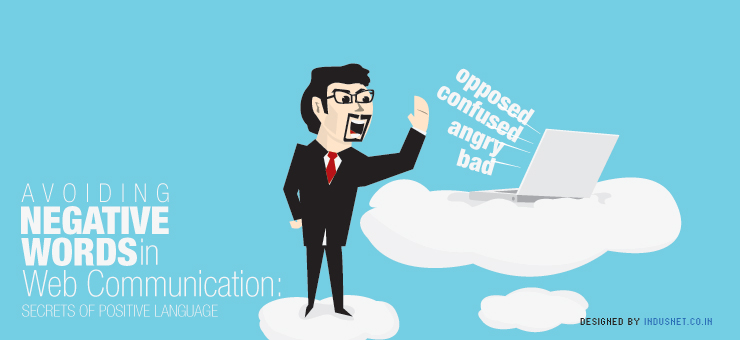
Not a single day goes by without reading that we must not use negative words, swear words, slangs or that we should not abuse each anyone while writing online. Unfortunately, all of us are complicit in using words that are offensive, vulgar or negative in aspects that we cannot fathom.
Secretive negative words
While using such negative words may impact our readers, there are also negative words that lurk behind sentences, words and phrases in ways that we initially do not recognize. These negative words creep in sentences without the knowledge of the writer and often have unconscious negative influences on the reader.
To make what we are trying to say clearer, here is an example:
Janice, a journalist wanted to write to her investment-savvy readers about a company that she investigated about. Her intention was to present that company in a positive light, so that more investors took interest in it. While she did a commendable job writing a great investigative report about the company’s board and its ethical policies, she wrote the article in such a way that readers did not see the positive aspects of the company, but chose to pick out negative words that lurked behind the sentences.
Janice wrote “Company X’s board plans to donate Y amount to a charity this summer”. She went on to say how the company is philanthropic and works for greater social causes. While all this sounds positive, the word ‘charity’ comes off as a negative term, especially to a group of investors who specifically look for companies that are profit driven.
What could Janice have written instead?
While, a charitable company is always honorable, it is not enough to attract prospective investors. Janice could have chosen to mention the word ‘charity’ only once in the article, and discuss more about the company’s constructive abilities. Though charity evokes noble and positive feelings in all of us, a potential group of investors may not find it ‘interesting’. Something that is not interesting to the reader is ‘negative’ from a writer’s point of view.
What makes words negative or positive?

While writing web copy or business to business marketing communication that will be published online, one must be very careful not to use negative words, even if they appear positive in the first glance. Negative words are not negative because of their meaning, but because of unsaid cognitions that happen within a reader’s mind. The reader may not even find these words negative but the impression is made. As a writer, one must choose words that are positive.
The secrets to using positive language
The secret to using positive language does not consist of using appealing words that have pleasant and positive connotations. Instead, the secret to using positive language is to ensure that the reader takes some kind of action. With that in mind, actionable phrases, words that encourage the reader to take action, do something, act on something that you writing about, etc constitute positive language.
With that in mind, here are a few tips that ensure that you keep your web communication positive in the real sense:
These tips and tricks are traditional best practices of writing but most bloggers, web content writers and even businesses do not understand the power of implicit meanings. Though something may appear positive, it may be inherently useless for the company, rendering those words negative. Similarly, words that seem negative may actually encourage the reader to do something you wish, rendering those words positive. Finally, the importance of editing and proofreading for negative connotations and non-actionable themes must be prioritized. There is nothing worse than assuming that one wrote a really actionable piece of content, only to realize later that people find the content so boring, they are not doing anything about it anyway.